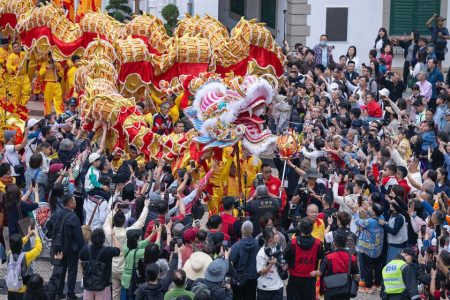Macao logged its fourth and fifth cases of locally transmitted dengue fever yesterday after the Health Bureau announced it had found two more patients around Rua do Tarrafeiro. The two cases come on the heels of a third case involving a 59-year-old woman living in Edificio Fa Wong Tong in the same neighbourhood, which was registered on 4 November.
According to a statement from the Health Bureau, the fourth case involves a 61-year-old male who was living under the same roof as the woman identified as the third case. The man began experiencing a fever on 3 November and was later confirmed to have contracted type 1 dengue fever following blood testing on 4 November.
The fifth case, meanwhile, is a 25-year-old man who resided in Edifício Fa Wong Tong. He began experiencing headaches on 28 October, followed by a fever and muscle pain the next day. The patient in question did not seek medical attention and was only found to have been infected with the virus after Health Bureau staff conducted checks on 4 November.
In addition, the authorities announced that they had redesignated the 24th case of imported dengue fever in Macao, which had been reported on 2 November, as a sixth locally transmitted case. This comes in light of new information that revealed the patient had been living in the same building and district as other locally transmitted cases, and had been infected with the same type 1 dengue fever.
[See more: Macao reports a third locally transmitted case of dengue fever]
The Health Bureau also announced a 25th case of imported dengue fever yesterday, involving a 43-year-old local woman who had travelled alone to Malaysia from 19 October to 2 November. The female began experiencing symptoms while in Malaysia, but only sought medical attention on 4 November after symptoms persisted upon her return to Macao. Blood testing revealed that the patient had contracted type 3 dengue fever.
Dengue fever is a disease that is spread through the bite of infected mosquitoes. In some cases, patients may be asymptomatic, while in other cases the virus can lead to mild to severe symptoms, including headaches, fever, nausea and rash.
According to the local government, the risk of dengue fever spreading is particularly high this month. In order to prevent the further spread of the disease, the Health Bureau said it would continue to conduct checks for more cases and implement mosquito control measures.
The authorities also urge residents to take precautionary measures such as clearing out stagnant water from around the house, applying mosquito repellent and using mosquito nets.






